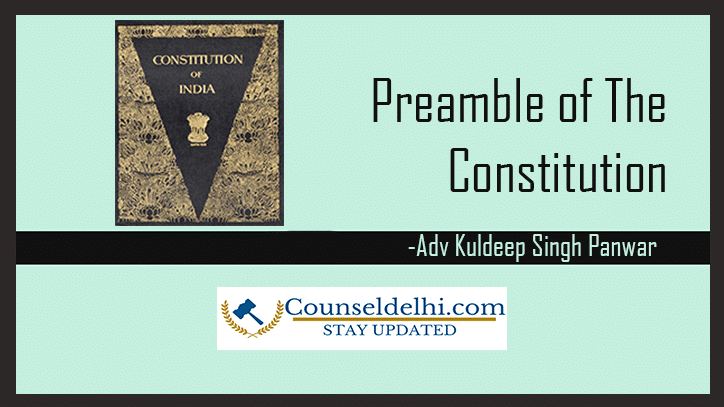Motor Vehicle Act Amendment-
Surendra Kumar Bhilawe V. The New India Assurance Company Limited (Civil appeal No. 2632 of 2020)
On 18th June, 2020, the Supreme Court of India passed a landmark judgment against the respondent, a person whose name is registered on a special motor, as per the definition of “owner” under section 2 (30) of the Motor Vehicles Act, 1988. The person will be treated as the owner of that vehicle.
The brief facts of the case are as follows:
That the petitioner party has claimed insurance for a truck from the defendant company which is The New India Assurance Company Limited, but in revert, the defendant company rejected the claim with the reason that about three years ago the petitioner party sold the truck to a third person and hence, the insurance company is not liable to pay compensation to the petitioner. Then the petitioner appealed before the District Forum and the appeal was allowed.
Being agitated, the defendants filed an appeal to the state commission and the forum dismissed the appeal. The appeal was again filed with the National Consumer Commission and the forum stated that on the basis that the owner of a vehicle sells his vehicle and displays the letter of sale in any way, the transfer of title to the property postpones it. The possession of the car is transferred to the buyer after the execution of the sales letter.
The petitioner was not satisfied with the decision of the National Consumer Forum, appealed to the Supreme Court of India. The Supreme Court is of the view that the National Consumer Forum had failed to notice the definition of “owner”, which is given in section 2 (30) of the Motor Vehicles Act, 1988. According to the act, Swami means “in a person”. In whose name the motor vehicle is registered and where such person is a minor, the guardian of such minor, and in relation to the motor vehicle, which is the subject of the purchase agreement, or lease agreement or hypothecation agreement. The person possesses the vehicle under that agreement”.
The Court also observed that the definition of “owner” was being changed. Definitions of owners differ from section 2 (19) of the Motor Vehicles Act, 1939, and section 2 (30) of the Motor Vehicles Act, 1988. According to the old definition, Swami means only that person who owns a vehicle, but according to the new Act, Swami means a person whose name is being registered for a particular vehicle.
The Supreme Court had taken a reference from various cases such as “Naveen Kumar v. Vijaya Kumar” and “Leela & Ors v. Shakuntala”, where the Bench observed that a registered owner remains the owner of a particular vehicle when it is insured and insured. The company is liable to pay compensation, irrespective of any transfer, will be equally applicable in case of claims made by the insured in case of an accident.
Approving the appeal, the Court noted that at the date of the accident, the petitioner remained the owner of the truck and that the insurer could not escape its liability for damages based on the transfer of ownership by the owner to a third person.





